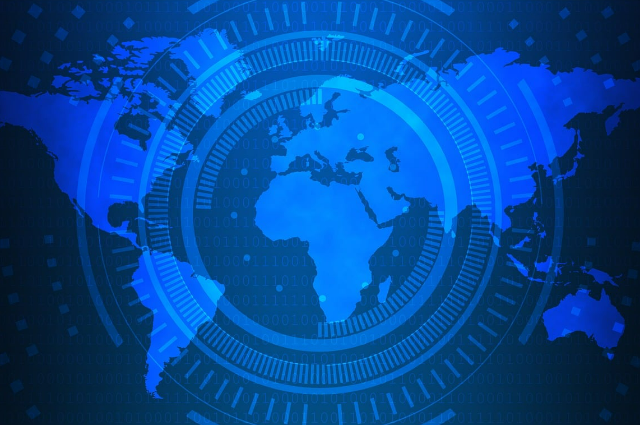
Image by Pete Linforth from Pixabay
We have been discussing how the world has evolved into a global village. What does it imply that we live in a global village? What is globalization, which is a topic of discussion in many forums right now? Is it merely a rebranding of Westernization? A brief distinction between globalization and Westernization is discussed in the following paragraphs.
Globalization is the acceleration of worldwide movements and exchanges (of people, things, services, money, technologies, or cultural norms). It is the booming interconnectivity and interdependency of all nations in the world. The globalization process has significantly decreased the existing gap between the nations in terms of interaction, trade, economic activity, business, and many more activities, turning the globe into a village. Examples of globalization include the creation of diplomatic organizations, the rise in popularity of Indian cuisine around the world, the Internet, international news networks, the Olympics, the FIFA World Cup, and more. It is essentially the merging of economics, lifestyles, and cultural practices from various parts of the world. It has given us multiple lenses to look at the world.
Humans have historically been constrained to thinking that the world is only what their eyes can see. As trade developed over time, voyages were undertaken that resulted in the interchange of goods, ideas, services, and cuisines. During the Age of Revolution, when concepts of liberty, equality, and fraternity spread like wildfire from America to France to Latin America and beyond, the network of globalization continued to widen. It was propelled by the development of industries, trains, steamboats, vehicles, and airplanes through the eighteenth, nineteenth, and twentieth centuries as it rode the waves of industrialization, colonization, and war. It then intensified further throughout the information era, resulting in the collaborative and interconnected society we live in today.
Along with globalization, there is another term that has been popularly on the rise, “westernization”. It is profoundly understood as the adaptation of Western cultures and practices all over the world. Normally it's associated with capitalism, freedom of thought and expression, and more and more with American cultural entertainment and lifestyles. For instance, popular diets (vegan, keto, etc.), Black Friday sales, Halloween celebrations, American pop culture in general, the rise of feminism, the concept of multiple identities, expanding LGBT+ groups, and fashion trends.
As the West dominated global trade and was a keen exporter of its religion, ideology, and technology to the rest of the world, it is no surprise that these two terms are used interchangeably but they are not the same thing. Westernization is more about the dominance of Western countries (including countries of the European Union, USA, Australia, Canada, etc.) over other parts of the world in terms of the way of living, certain beliefs, practices, and so on. On the contrary, globalization is the bigger picture which is the intermingling of countries across the globe in various aspects.

While globalization has contributed to the spread of some Western cultural elements, such as fast foods and fashion trends, it has also facilitated the diffusion of ideas and practices from non-Western cultures across the globe. For instance, the popularity of yoga and meditation in Western countries is an example of non-western cultural practices that have gained global acceptance. Similarly, the rise of Asian economies like China and India as major players in the global economy is a testament to how globalization has enabled non-Western cultures.
The popularity of Western movies in other countries is very common, which is Westernization but the popularity of “3 Idiots” (the only Indian film in the league of acclaimed and popular films worldwide, namely- The Dark Knight, Avengers: Infinity War, Inception, The Shawshank Redemption), South Korean movies and series such as “Train to Busan”, “Parasite”, “Squid Game”, Japanese series “Alice in Borderland” etc., is globalization.
Westernization is a part of globalization but they don’t mean the same as globalization goes beyond the cultural dominance of the West. Globalization is more of a dialogue, and mutual exchange and goes in multiple directions while Westernization is more about the one-way influence of Western countries. To conclude, westernization can be an inevitable part of globalization but they are not the same. Globalization is global intermingling, which is a developed and important process in the history of human civilization.
